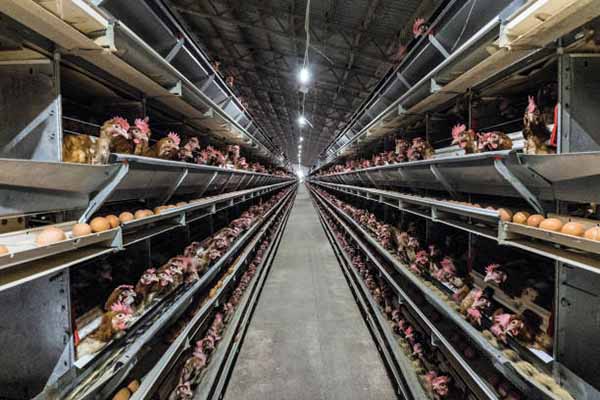How to Start a Chicken Farm in Florida: A Step-by-Step Guide
Time : 2025-04-17
Embarking on the journey to start a chicken farm in Florida is an exciting endeavor. With the right planning and knowledge, you can turn your passion for poultry into a profitable business. In this article, we’ll walk you through the essential steps to get your chicken farm up and running in the Sunshine State.
1. Research and Market Analysis
Before diving in, it’s crucial to understand the market and competition in Florida.
– Identify your target market: Decide whether you want to focus on commercial laying hens, broiler chickens, meat birds, or perhaps heritage breeds for direct-to-consumer sales.
– Understand the competition: Research existing chicken farms in your area. Note their pricing, product offerings, and market positioning.
– Assess demand: Consider the local demand for eggs, chicken meat, and other poultry products. Check out local markets, grocery stores, and restaurants.
2. Legal and Business Planning
Lay the groundwork for your farm with proper legal and business planning.
– Zoning and Permits: Check with local government authorities to understand zoning laws and the type of permits you need for a chicken farm. This might include an agricultural permit and specific zoning for poultry farming.
– Business Plan: Write a comprehensive business plan that outlines your goals, target market, competition, marketing strategy, and financial projections.
– Insurance: Don’t forget to get appropriate insurance to protect your assets and comply with state requirements.
3. Choose a Location
The location of your chicken farm is vital for its success.
– Climate Considerations: Florida’s warm climate requires a specific approach to chicken farming, such as shade structures and ventilation.
– Accessibility: Make sure your location is accessible for suppliers and buyers. Proximity to markets can affect your profitability.
– Water Supply: Ensure a reliable water source for your flock’s hydration and the operation of your facilities.
4. Design Your Farm Facilities
Create a detailed plan for your farm’s infrastructure.
– Chicken Coops: Choose a design that maximizes space, offers good ventilation, and is secure from predators. Consider adding nesting boxes for laying hens.
– Water and Feeders: Install automatic watering and feeding systems for convenience and efficiency.
– Shelter: Provide shade to protect your chickens from the intense Florida sun.
5. Get the Right Equipment
Invest in high-quality equipment that can handle the demands of your farm.
– Roosters vs. Hens: Decide whether to have roosters for breeding or hens for laying eggs.
– Hatcheries: Look for reputable hatcheries or breeders for your initial stock.
– Machinery: Consider purchasing egg-collecting machinery and other automation to increase efficiency.
6. Health and Welfare
Ensure the health and welfare of your chickens are your top priority.
– Vaccinations: Implement a vaccination schedule to protect against common poultry diseases.
– Diet: Provide a balanced diet suitable for your chickens’ stage of life (broilers, pullets, laying hens).
– Environmental Management: Regularly check and maintain the coops to prevent health issues.
7. Marketing Your Farm
Develop a strong marketing strategy to reach your target audience.
– Direct Sales: Consider setting up a farmers’ market booth or a farmstand to sell eggs and chicken products directly to consumers.
– Wholesale: Establish relationships with local restaurants, cafes, and grocery stores for bulk sales.
– Online Presence: Create a website and use social media to market your farm and engage with customers.
8. Monitor and Adjust
Continuous monitoring and adjustment are key to the success of your chicken farm.
– Performance Tracking: Keep detailed records of your flock’s health, growth, and production.
– Feedback Loop: Gather feedback from customers and stakeholders to improve your products and services.
– Continuous Improvement: Stay updated on new farming technologies and practices to increase efficiency and profitability.
Conclusion
Starting a chicken farm in Florida can be a challenging yet rewarding venture. By following these steps, you’ll be well on your way to building a sustainable and profitable business. Remember, patience, persistence, and a love for chickens are your best allies.












